WEST BENGAL:
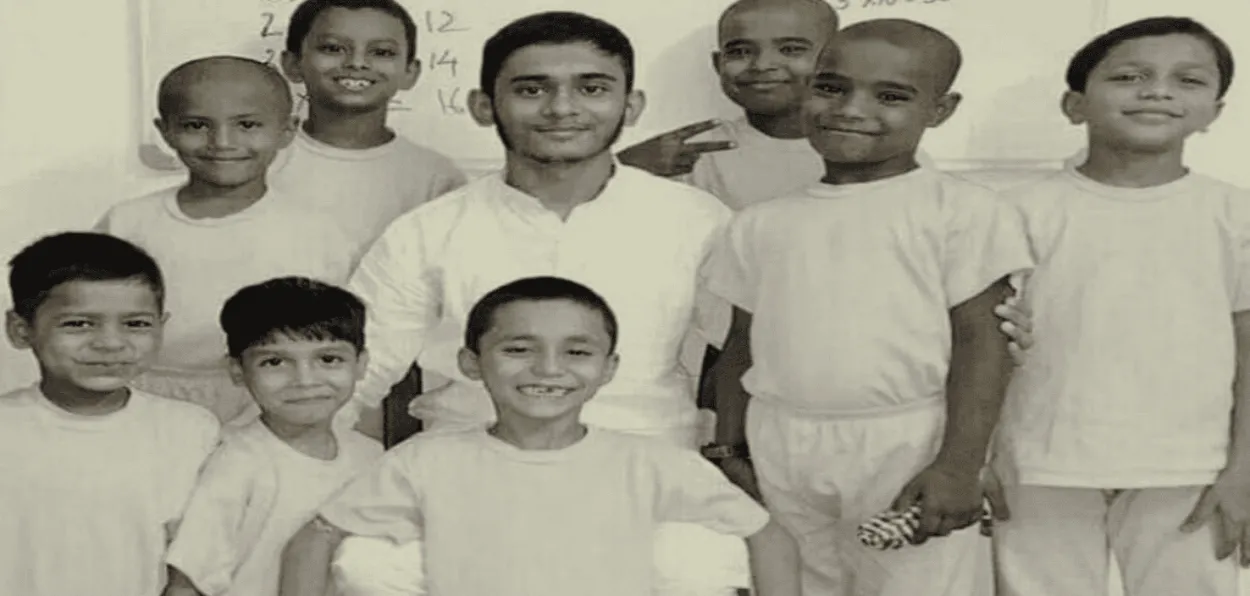
The National Commission for Protection of Child Rights (NCPCR), the apex watchdog for the rights of Indian children has released stunning figures about education and poverty. It says 10 lakh people stopped going to school in 2021 because they could not pay the fees.
While most of us read it and moved on, the 23-year-old Wali Rahmani, a student of law, is working hard to change this situation. His focus is on Muslims, who have the worst record in education among the Indians.
The Kolkata-based Wali Rahmani is studying in the final year of law. He has studied at the country’s best schools, St. James, Kolkata, and Genesis Global School, Noida. As a student of the Singapore International School, he won the national-level gold medal in the turncoat debate held in Mumbai.
Wali Rehmani has set up Umeed Academy, an institution where he is trying to impart “Convernt-style” education to girls and boys who come from poor Muslim families. Soon after passing his 12th standard in 2018, he started the Umeed Foundation and his school project with 10 children.
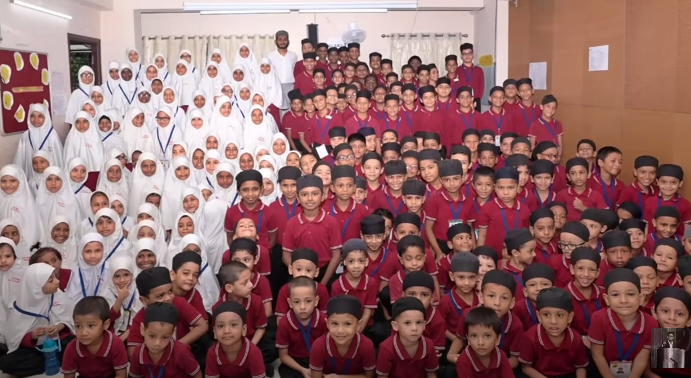
Wali Rehmani’s dream is to provide A-class and “Convent-style” education to a large number of Muslim students. At present the campus of the Umeed Academy is being built on a two-acre plot near Kolkata. When completed, it will have a school, separate hostels for boys and girls, a football ground and a basketball court.
However, since all this costs money and is beyond the means of one person, Wali Rehmani has released a video on social media to raise funds transparently and innovatively. In it, he says if 10 lakh Muslims donate Rs 100 each it will raise Rs crore and give wings to his dreams and those of the children who lose the race in life because of poverty.
In the video message released on YouTube recently, Wali Rehmani tries to explain easily the figures of school dropouts among Muslims.
Besides quoting the NCPCR, he also quotes the 2019 data of the National Council for Applied Economic Resources, which says that 21 percent of the Muslims in the country are forced to live below the poverty line. The monthly income of 6 crore Indian Muslims is less than Rs 2500, while there is no data available for those earning Rs 2500 to Rs 10,000 per month.
Wali Rahmani says, in his video, that after passing his 12th standard, he decided to provide Islamic-convent education to the children of hard-working Muslim families.
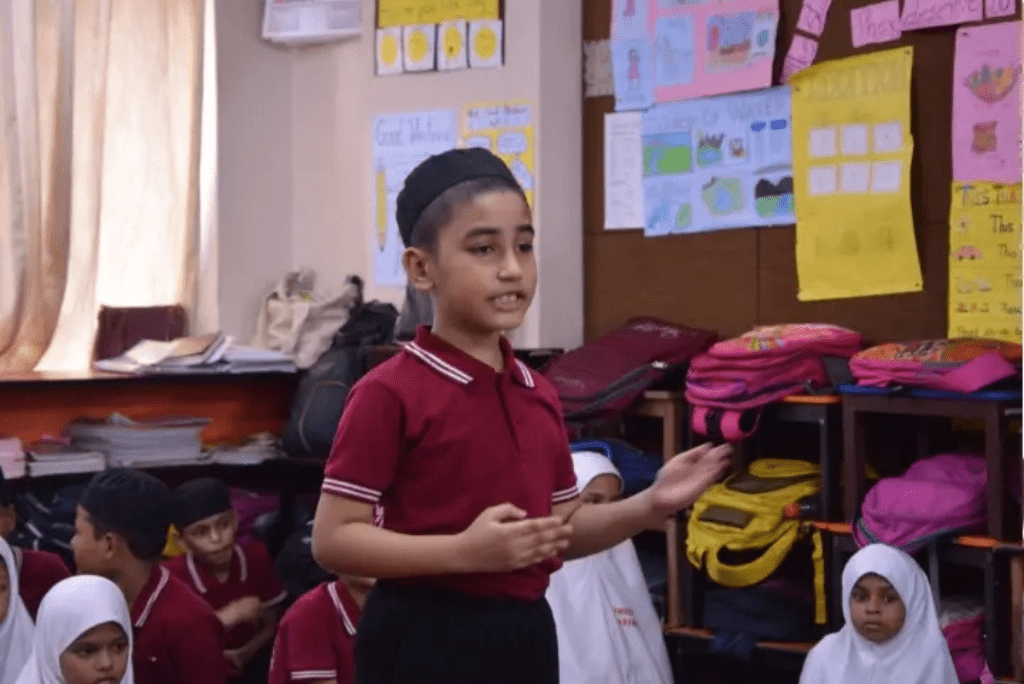
He says the existing Umeed Academy campus in Kolkata is small, the upcoming campus on two acres is being constructed. He says if this experiment is successful the corpus of Rs 10 crore will help him build 100 more such schools.
His message is impactful. People are donating money and his video is being shared widely on other platforms to spread the message.
As such, Wali Rahmani is a social influencer with more than one million followers on social media. He appears in various national television debates. He says his work is not ‘social work’ but his social duty.
Wali Rehmani believes that leaders are not born, they are made.
Wali Rehmani is the recipient of the Young Social Hero Award at the South India NGO Conference in 2019.
He has established the Al Hadi School Trust to carry forward the work of the school.
Wali Rahmani says Umeed Academy is not just an institution but an expression of a dream. It works towards the holistic development of destitute children and orphans and enables them to take control of their lives. “The goal is to convert these children, who are currently considered a liability into assets of the society.”
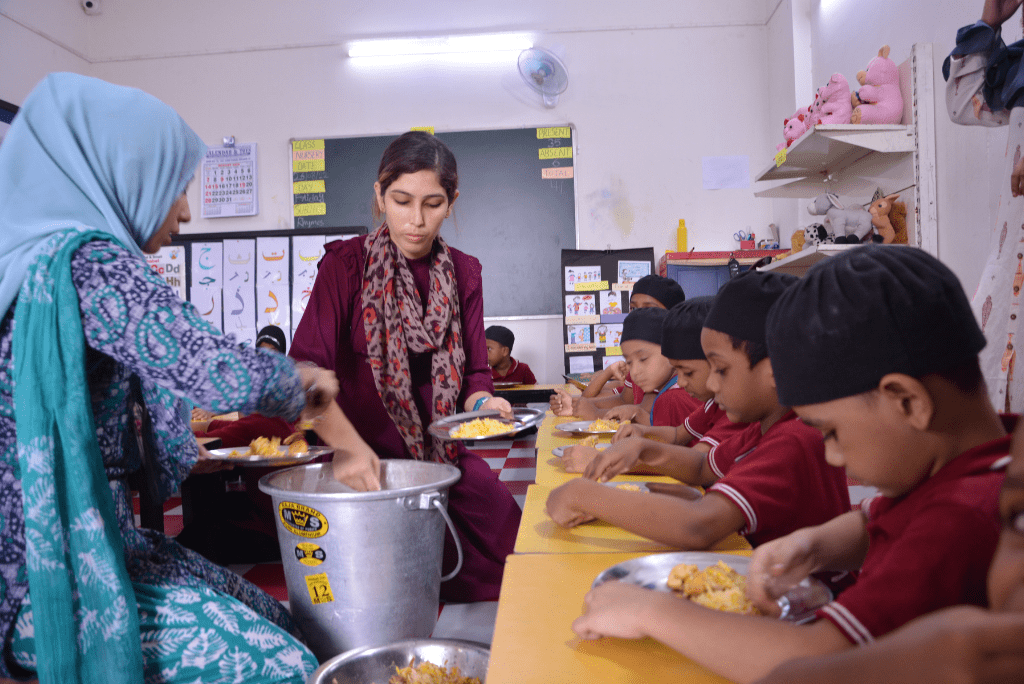
The Ummeed Academy has a curriculum that combines worldly education and Islamic principles to inculcate the idea of civilization and spirituality at the same time.
Wali Rahmani says every child who graduates from Umeed Academy will become an institution builder and leader.
“Our mission is to promote inclusive growth by educating and skilling underprivileged children through easy access to quality education. Our objective is to bring rapid educational transformation in the weaker sections of the society who generally cannot afford to educate their children.”
The school has the CBSE and ISC curriculum. Given the background of students, they are mostly malnourished and not in good health. That aspect is also taken care of at the Academy.
The Umeed Foundation also aims to work on social problems like child marriage, sexual violence, lack of awareness about menstrual hygiene and child labour, drug addiction, and drug-induced environment faced by children from marginalized communities.
According to Wali Rahmani, Umeed Academy has adopted a holistic approach for its children. Our goal is to provide privileged education to the underprivileged. To achieve that goal, we follow the CBSE curriculum with special emphasis on outcome-based learning, discussion, debate, and interdisciplinary learning.
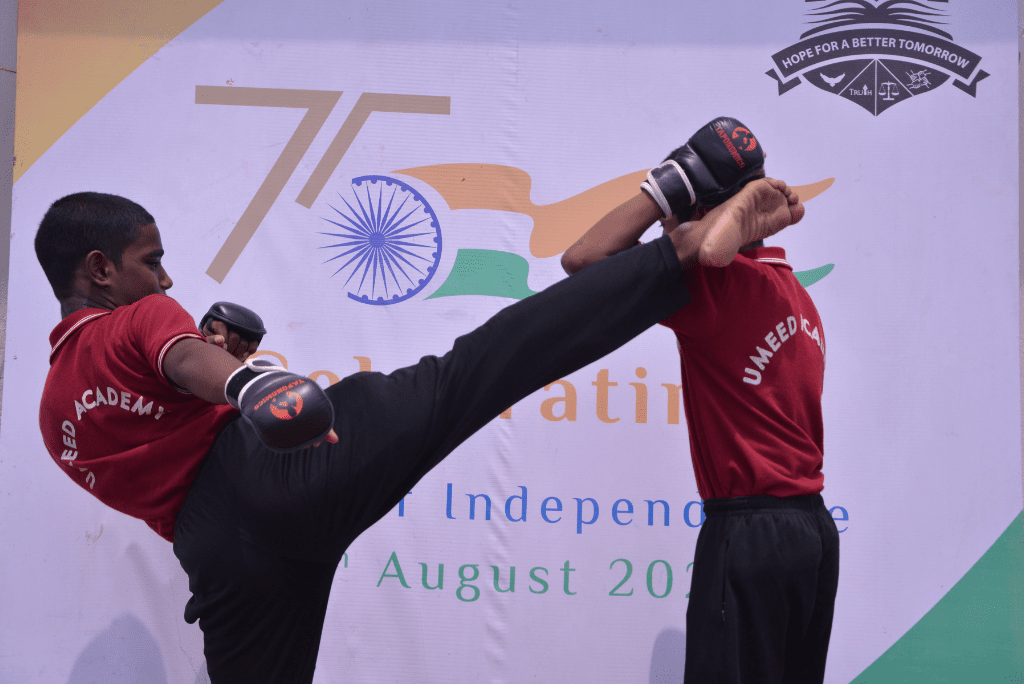
We have developed a well-integrated system of curriculum, instruction, and assessment, where learning outcomes, teaching objectives, and goals are clearly defined for teachers.
The lesson plans are divided into three categories. Smart classes are installed in all the classrooms. We believe in visual and auditory learning. Muslim children are taught Quran recitation, Islamic history, Seera, Dua, Hadith, and Islamic etiquette.Rehmani says he is proud of the fact that the children have a glow on their faces because of the good and nutritious food provided to them at the academy.
The students also also taught kickboxing as a means to defend themselves. He says most children have faced sexual and domestic violence and kickboxing empowers them and makes them bodily and mentally stronger. They also learn martial arts from coach Noor Muhammad Bhutia.
Wali Rahmani says, “We have introduced research and presentation as a part of our curriculum, which mainly focuses on subjects like science and social studies.’
According to Wali Rehman, the foundation of our curriculum is to impart ethics and values. We want to give our children a healthy environment where they can develop unique personalities. Besides, research and presentation are also part of the curriculum.
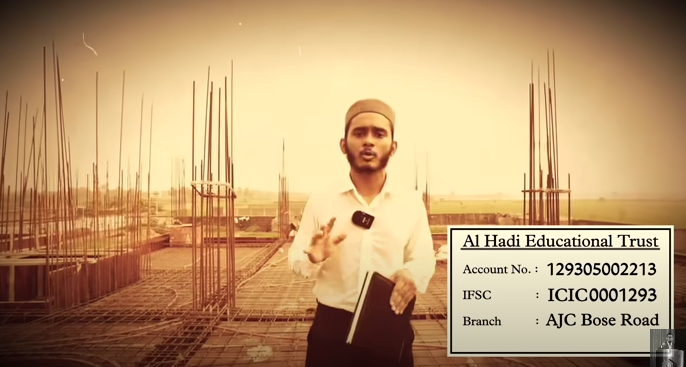
The Academy has developed a well-integrated system of curriculum, instruction, and assessment, where learning outcomes, teaching objectives, and goals are clearly defined for teachers.
The lesson plans are divided into three categories. Smart classes are installed in all the classrooms. We believe in visual and auditory learning. Muslim children are taught Quran recitation, Islamic history, Seera, Dua, Hadith, and Islamic etiquette.
curriculum, instruction, and assessment, where learning outcomes, teaching objectives, and goals are clearly defined for teachers.
The lesson plans are divided into three categories. Smart classes are installed in all the classrooms. We believe in visual and auditory learning. Muslim children are taught Quran recitation, Islamic history, Seera, Dua, Hadith, and Islamic etiquette.
“Our children come from dark backgrounds, which have distorted them in some way or the other. Most of all, we want our children to grow up as kind and decent human beings. We tell children the difference between good and bad and right and wrong,” Wali Rehmani said.
Every morning, children attend an assembly where morals and values are taught. Along with education, teachers also work with children on language skills, basic etiquette, table manners, politeness, love, compassion, kindness, agreement, caring, appreciation, and integrity.
Umeed initially visited underdeveloped target areas to promote a clean, hygienic environment and safe drinking water, but as time passed, our team learned about all the social issues that come with illiteracy.
Today, apart from providing exemplary education, our efforts are also towards addressing social issues like child labor, child marriage, sexual and domestic abuse, and substance abuse.
Studies have shown that almost 70 percent of girls do not know anything about the menstrual cycle before their first menstruation. So the girls in the school learn about this biological process well in time to remain prepared to handle it.
source: http://www.awazthevoice.in / Awaz, The Voice / Home> Story / by Malick Asghar Hashmi, New Delhi / September 19th, 2023








